Geoffrey Rubin
At 5:07 pm on July 27 of last year, my pager’s beep pierced the bustle of the hospital hallway: “CARDIAC ARREST, 6GS room 356 bed 2. Need cards STAT.”
It was only seven minutes into my first overnight call as a cardiology (“cards”) fellow, and I felt like I’d received a code-dose shot of epinephrine. In a most un-doctorly manner, I sprinted up the four flights of stairs to the ward.
Panting, I burst into the patient’s room, to be greeted by a cacophony of bells, bleeps and whistles, latex gloves snapping and catheter kits crackling.
A mob of nurses, residents, care coordinators and technicians turned to face me. Twenty pairs of eyes focused on my own.
“We’ve never seen anyone arrive quite like that,” one nurse quipped with a tight-lipped smile.
“What’s going on?” I inquired breathlessly.
A bearded, six-foot-five critical-care physician handed me an electrocardiogram (EKG), a test that I’d spent my past three years as an internal-medicine resident learning to decode–and the hallmark diagnostic tool of my chosen specialty.
All of a sudden, uncertainty enveloped me. The paper in my hand became a pink blur with unintelligible squiggles across it.
I looked at the patient. An obese man with an ash-blue face, he sat up in bed, struggling to breathe through an oxygen mask as an intern poked him in the groin with an intravenous catheter. The patient was only slightly more sweaty than I.
All at once, my senses not only magnified but also muddled and mismatched. I could hear my blood, smell the EKG, see the loud alarms, feel everyone’s penetrating stares.
My eyes, utterly unfocused, darted from the EKG to the patient and back again, as my mind railed against my incompetence: You knew how to do this seven minutes ago! What happened to the clinical calm and steely poise you gained during your internal-medicine training?
Out of the void came a ghostly voice, like that of Obi-Wan Kenobi. It was that of an attending physician, who’d said: “An electrocardiogram is like a work of Impressionist art. Step back, look at it from a distance, take it in. Enjoying it will help you to understand its meaning.”
Unhappily, to my agitated senses, the “work” before me resembled not a graceful, harmonious Monet lily pad but a spidery, uninterpretable Miró abstract.
Taking one slow, deep breath, I felt my eyes and brain start to work together again. I discerned spikes on the paper, indicating the presence of a device delivering electrical impulses to the heart.
“The patient has a pacemaker!” I bellowed victoriously.
“We know,” replied the medicine resident coolly; he reminded me of myself at the end of my own residency, just one month before. “But is it a heart attack?”
“Uh, I don’t know. I don’t think so,” I answered brilliantly.
“Can you even diagnose a coronary syndrome in the presence of a pacemaker?” he countered.
“Uh, I don’t know. I think so,” I answered.
As the patient slowly stabilized himself without my help, the tension defused, and the assembled caregivers, including some of my former internal-medicine colleagues, slowly filed out. Glumly, I wondered if they sensed my ineptitude.
Eventually, after more back-and-forth with the care team, I swallowed my pride and phoned the senior fellow, who was also a friend. He reminded me of the fundamentals and walked me through my first “emergency” as a fellow. We obtained further history, repeated vital signs, examined the patient(!)–his name, I learned, was Mr. Boyd–reviewed his recent medications and blood work and compared his present EKG with a prior one.
Within minutes, we learned that Mr. Boyd had accidentally taken too much of a home medication. He wasn’t having a heart attack–and, better yet, I had done nothing to harm him. My immense relief was laced with guilt and insecurity.
In the twelve months that followed, I was on call more than thirty times. Gradually, things got better. There were more tough moments, but also some affirming ones, like getting the hang of the echocardiography machine, holding the ultrasound probe right-side-up, finding the heart without a hitch and making diagnoses on the spot.
I could feel my self-assurance blossoming. This intangible change, I noticed, had a tangible effect–patients were more comfortable with the “official” cardiology care plan, surgical colleagues respected my opinion, and nurses specifically requested that I perform procedures in lieu of the less experienced residents.
My final call of the year, this past June, was my busiest, but nonetheless, it had an easygoing, natural feel–a sensation I never could have fathomed back in July of 2015.
Paged about a coronary emergency, I didn’t run–I walked briskly, even with a little swagger. Mental muscle memory kicked in as I assertively ordered heparin, visualizing the clotted coronary artery based on the EKG pattern. Later, speaking with a senior physician about another patient’s unusual cardiac rhythm, I calmly conversed in a previously unintelligible language: “It looks like a rate-related left bundle branch block with intermittent paced fusion beats on a low voltage strip.”
Once a naïve, nervous rookie, I’d become a more confident physician. How did this transformation occur?
Obviously, accumulating clinical knowledge, experience and intuition was vital. I learned that certain clinical scenarios always will–and always should–make me nervous. Should I send Ms. Ortiz–a forty-three-year-old mother of two–for her second open-heart mitral-valve replacement? If I advance and twist this catheter two millimeters, will it provoke a serious arrhythmia in Mr. Horton’s heart? Whether you’re a first-year fellow or a seasoned clinician, these questions raise hefty levels of anxiety. As one mentor frequently reminds me: “Never mail it in, no matter what. You’re only one second away from your next disaster.”
As crucial as it is to gain clinical wisdom, though, I know that maturing as a doctor also involves something more nebulous, but just as important: developing a collaborative spirit.
No doctor is an island. Beginning with my very first night on call, I’ve sought advice each day from colleagues and senior cardiologists, infectious-disease specialists and anesthesiologists. Once my patients leave the hospital, I hold ongoing dialogues with their primary-care physicians. The patients at my inner-city medical center are mostly non-English speaking, underserved and vulnerable to lost follow-up, so good communication among doctors, patients and family members is crucial. That’s the only way we’ll all know that Mr. Gonzalez requires an echocardiogram in three months, or that Mrs. Jensen needs to take a drug three times daily and record her daily weight. A sense of solidarity and cooperation can help to ensure that those things happen.
Having embarked on my second fellowship year, I think about the new cardiology fellows and the challenges they’ll face, on-call or in the clinic. I hope that I’ll be able to help them to smoothly navigate their consults, from “CARDIAC ARREST” to congestive heart failure.
And I look forward to reassuring them that they don’t have to go it alone.
About the author:
Geoffrey Rubin is a cardiology fellow at Columbia University, where he has done all of his medical training. His previous publications include a perspective article (“Breaking Up Is Hard to Do“) in the New England Journal of Medicine and a New York Times “Metropolitan Diary” entry. “I started writing in college, thanks to encouragement from my parents and from Elie Wiesel, my mentor at Boston University.”
Story editor:
Diane Guernsey

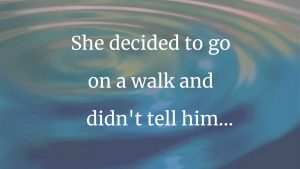

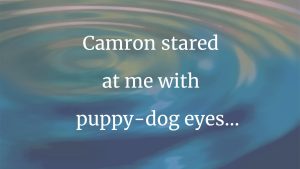
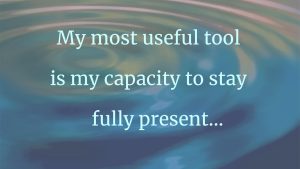
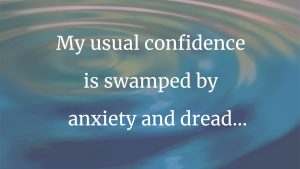
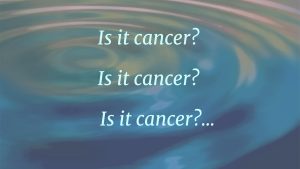
2 thoughts on “Paging Cardiology”
I don’t envy doctors. Tough decisions under immense stress. You captured it well.
You have totally, captured the excitement, earnestness and fear, of most health care givers during their first “Emergency”. All senses, on heightened alert. And, you wrote it with the humor of hindsight.
Humor is great medicine, a great method for teaching and a less painful way to learn. I had to keep wiping away my tears of laughter as I nodded my head (it reminded me of outdoor humorist Patrick McManus, stories)
I agree, you should keep writing and healing.
Best of Luck !